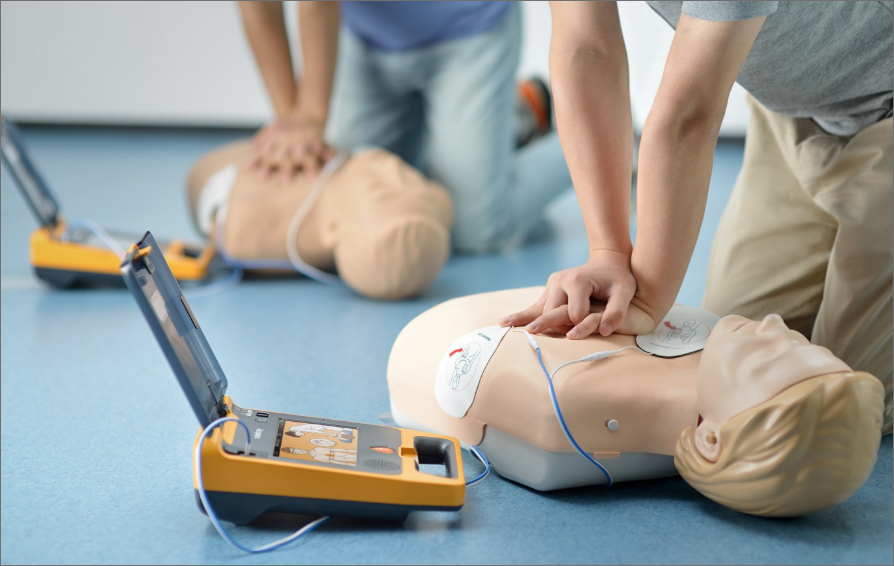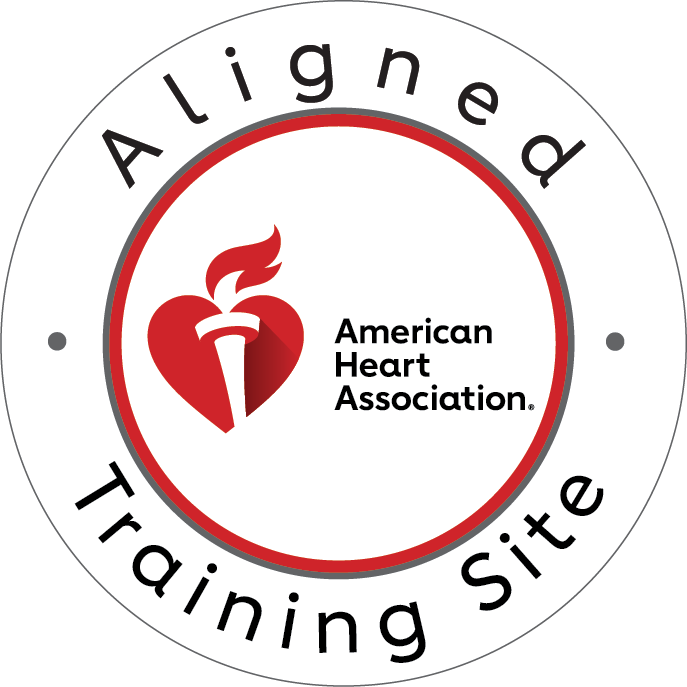I. Understanding the Costs of AHA CPR Renewal
In the realm of healthcare and emergency response, staying current with CPR certification is not just a professional requirement—it’s a critical skill that can mean the difference between life and death. As certifications expire, healthcare providers and concerned citizens alike face the task of renewing their CPR credentials. This process, while essential, often comes with questions about costs and the best options for recertification.
The American Heart Association (AHA) stands as the gold standard in CPR training, offering a variety of programs designed to equip individuals with the latest life-saving techniques. From Basic Life Support (BLS) for healthcare providers to Advanced Cardiovascular Life Support (ACLS) and Pediatric Advanced Life Support (PALS), the AHA provides comprehensive training options to meet diverse needs.
II. Factors Affecting CPR Renewal Costs
When considering CPR renewal, several factors can influence the overall cost:
- Type of Certification: The specific course you need to renew—whether it’s BLS, ACLS, or PALS—plays a significant role in determining the cost. More advanced courses typically come with higher fees due to their complexity and the resources required.
- In-person vs. Online Options: The format of the renewal course can affect pricing. While online courses often offer convenience and potentially lower costs, in-person training provides hands-on experience that many find invaluable. Some certifications require a blend of both, with online coursework followed by in-person skills verification.
- Geographic Location: Costs can vary significantly depending on where you live. Urban areas or regions with higher costs of living may see higher prices for CPR renewal courses.
- Training Center Reputation and Resources: Established training centers with state-of-the-art equipment and experienced instructors may charge more for their courses. However, the quality of training and the confidence it instills can be well worth the investment.
Understanding these factors can help you navigate the CPR renewal landscape more effectively, ensuring you find a course that fits both your educational needs and your budget.
III. Average Cost Ranges for AHA CPR Renewal
When budgeting for your CPR recertification, it’s helpful to have a general idea of the costs associated with different AHA programs. Keep in mind that these are average ranges and may vary based on the factors mentioned earlier.
- BLS (Basic Life Support) Renewal Costs BLS renewal is typically the most affordable option, as it covers fundamental CPR skills for healthcare providers. On average, you can expect to pay between $50 to $100 for a BLS renewal course. Some providers may offer lower rates, especially for online components, while others might charge more for comprehensive in-person training.
- ACLS (Advanced Cardiovascular Life Support) Renewal Costs ACLS renewal, being a more advanced course, generally comes with a higher price tag. The average cost range for ACLS renewal is typically between $200 to $300. This higher cost reflects the more complex material covered and the often longer duration of the course.
- PALS (Pediatric Advanced Life Support) Renewal Costs PALS renewal costs are usually similar to ACLS, ranging from $200 to $300. The specialized nature of pediatric care and the comprehensive training involved justify this price range.
IV. Additional Expenses to Consider
When calculating the total cost of your CPR renewal, don’t forget to factor in these potential additional expenses:
- Course Materials: Some renewal courses require or recommend purchasing updated textbooks or accessing online learning modules. These materials can add anywhere from $20 to $50 to your total costs.
- Skills Check Fees: If you opt for a blended learning approach with online coursework and in-person skills verification, there may be an additional fee for the hands-on portion. This can range from $35 to $75, depending on the provider and location.
- Travel Expenses: For in-person courses, consider any travel costs you might incur. This could include gas, parking fees, or public transportation costs to reach the training site.
By taking these additional expenses into account, you can get a more accurate picture of the total investment required for your CPR renewal.
V. Cost-Saving Strategies
While CPR renewal is an essential investment in your skills and career, there are several strategies you can employ to manage costs effectively:
- Group Discounts: Many training centers offer discounts for group registrations. If you’re part of a healthcare team or know colleagues who also need to renew their certification, consider organizing a group to take advantage of these savings. Group rates can sometimes reduce individual costs by 10-20%.
- Early Registration Benefits: Some providers offer early bird discounts for those who register well in advance of the course date. By planning and securing your spot early, you might save anywhere from 5-15% off the regular price.
- Employer Reimbursement Programs: Many healthcare organizations and employers recognize the value of having CPR-certified staff. Check with your human resources department to see if your employer offers reimbursement for certification costs. Some may cover the full cost, while others might offer partial reimbursement.
VI. Spotlight on CPR Louisville: A Recommended AHA Training Site
When considering where to renew your CPR certification, it’s crucial to choose a reputable and high-quality training center. CPR Louisville stands out as an excellent option for those in the Louisville area and beyond.
- Overview of CPR Louisville: CPR Louisville is an American Heart Association training site that offers both initial certifications and renewals in a variety of life-saving courses. Their commitment to quality training and stress-free learning environments has earned them a reputation as one of the best CPR training providers in Louisville.
- Available Courses: CPR Louisville offers a comprehensive range of AHA-certified courses, including:
- BLS for Healthcare Providers
- ACLS
- PALS
- CPR and First Aid courses
This wide selection ensures that whether you’re a healthcare professional or a concerned citizen, you can find the appropriate course for your needs.
Benefits of Choosing CPR Louisville
- Stress-free learning environment: CPR Louisville understands that learning life-saving skills can be intense. They’ve crafted their courses to be engaging and effective without unnecessary pressure.
- Hands-on training approach: All classes at CPR Louisville incorporate practical, hands-on elements, ensuring that you not only understand the theory but can confidently apply the skills in real-world situations.
- Experienced instructors: The training team at CPR Louisville consists of seasoned professionals who bring real-world experience to the classroom, enriching the learning experience.
CPR Louisville’s approach to training, combined with its AHA certification, positions it as a top choice for CPR renewal in the area.
VII. Comparing Costs: CPR Louisville vs. Other Options
When evaluating CPR Louisville as your choice for AHA CPR renewal, it’s important to consider both the cost and the value they provide compared to other options.
- Competitive Pricing: CPR Louisville strives to offer competitive pricing for its AHA-certified courses. While specific prices may vary and should be confirmed directly with the center, they generally fall within the average ranges discussed earlier for BLS, ACLS, and PALS renewals. This competitive pricing ensures that quality training remains accessible to healthcare professionals and community members alike.
- Value-Added Benefits: When comparing costs, it’s crucial to look beyond just the price tag and consider the overall value. CPR Louisville offers several value-added benefits that may make their courses more cost-effective in the long run:
- Quality of Instruction: The experienced instructors and hands-on approach at CPR Louisville can lead to better retention of skills, potentially reducing the need for additional training or refresher courses between renewal periods.
- Convenience: With a variety of course options and schedules, CPR Louisville makes it easier to fit renewal training into your busy life, potentially saving you time and associated costs.
- Stress-Free Environment: By providing a supportive learning atmosphere, CPR Louisville helps ensure that you get the most out of your training investment, increasing your confidence and competence in applying CPR skills when needed.
- Local Expertise: As a Louisville-based center, CPR Louisville offers the advantage of local knowledge and potentially easier access for those in the area, which could translate to savings on travel and accommodation for in-person training.
VIII. Conclusion
- Importance of Considering Quality Alongside Cost: While cost is an important factor in choosing where to obtain your CPR certification, it shouldn’t be the only consideration. The quality of training you receive can have real-world implications in emergencies. When looking for CPR certification in Louisville, it’s crucial to find a provider that offers both value and excellence in training.
- Encouragement to Obtain or Renew CPR Certification Promptly: Whether you’re seeking initial certification or renewal, the most important thing is to act promptly. Having up-to-date CPR skills is not only professionally beneficial but can also be life-saving in critical moments. For those in the Louisville area, exploring options for CPR certification in Louisville should be a priority.
- Recommendation for BLS Certification in Louisville: For healthcare professionals and those seeking more comprehensive training, BLS certification in Louisville is an excellent option. BLS (Basic Life Support) courses provide a deeper understanding of life-saving techniques and are often required in many healthcare settings.
- Call to Action for CPR Louisville: While our earlier discussion focused on Louisville, we encourage readers in the Louisville area to explore local options for high-quality CPR and BLS training. Look for training centers in Louisville that offer AHA-certified courses, experienced instructors, and hands-on learning experiences. These elements are crucial for effective CPR and BLS certification in Louisville.
Remember, the right CPR or BLS certification course in Louisville can provide you with the skills and confidence to respond effectively in emergencies. Don’t delay in seeking out reputable providers in your area to ensure you’re prepared when it matters most.





